While the rating tells you how good a book is according to our two core criteria, it says nothing about its particular defining features. Therefore, we use a set of 20 qualities to characterize each book by its strengths:
Applicable – You’ll get advice that can be directly applied in the workplace or in everyday situations.
Analytical – You’ll understand the inner workings of the subject matter.
Background – You’ll get contextual knowledge as a frame for informed action or analysis.
Bold – You’ll find arguments that may break with predominant views.
Comprehensive – You’ll find every aspect of the subject matter covered.
Concrete Examples – You’ll get practical advice illustrated with examples of real-world applications or anecdotes.
Controversial – You’ll be confronted with strongly debated opinions.
Eloquent – You’ll enjoy a masterfully written or presented text.
Engaging – You’ll read or watch this all the way through the end.
Eye opening – You’ll be offered highly surprising insights.
For beginners – You’ll find this to be a good primer if you’re a learner with little or no prior experience/knowledge.
For experts – You’ll get the higher-level knowledge/instructions you need as an expert.
Hot Topic – You’ll find yourself in the middle of a highly debated issue.
Innovative – You can expect some truly fresh ideas and insights on brand-new products or trends.
Insider’s take – You’ll have the privilege of learning from someone who knows her or his topic inside-out.
Inspiring – You’ll want to put into practice what you’ve read immediately.
Overview – You’ll get a broad treatment of the subject matter, mentioning all its major aspects.
Scientific – You’ll get facts and figures grounded in scientific research.
Visionary – You’ll get a glimpse of the future and what it might mean for you.
Well structured – You’ll find this to be particularly well organized to support its reception or application.












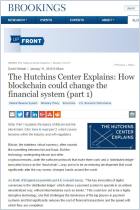
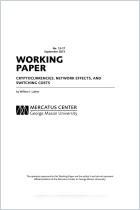
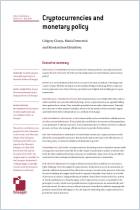
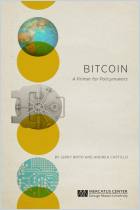
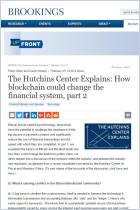






Comment on this summary or Start Discussion
VCs can’t serve as a “store of value” due to their price instability - Money markets are also not completely stable. I posit the more frequent ups and downs are the result of it being a computer based currency and that the traditional currency markets will become just as volatile once they are controlled more by algorithms.
VC isn’t an “independent unit of account” since transactors gauge a VC’s value by its exchange rate with a legal currency. - By this logic many countries including Saudi Arabia don't have true currencies because they are pegged to the US dollar.
their use as a “medium of exchange” is also restricted, because only a limited audience pays for and accepts transactions with VCs. - Currently accurate. Similar to how Credit Cards weren't accepted everywhere initially (or at fast food chains until fairly recently). Merchants will find a way to get money if enough customers want to pay with VC.